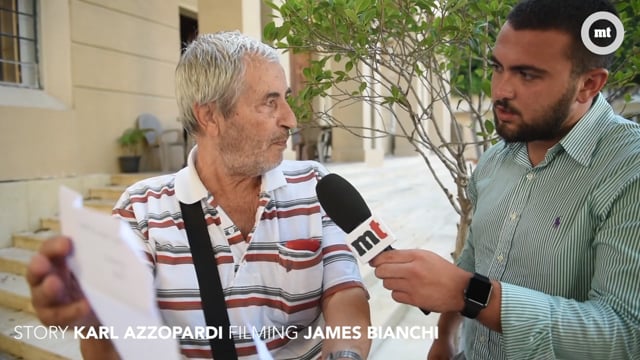Digital banking during COVID-19 makes it harder for elderly
The growing shift to online services by Maltese banks has proven problematic for elderly clients who are unable to gravitate towards digital banking

The growing shift to online services by Maltese banks and branch closures are proving problematic for elderly clients who are unable to gravitate towards digital banking.
Experts who spoke to MaltaToday agreed that high, in-branch minimum withdrawals and the curtailment of the branch network, were widening the ‘digital divide’ for pensioners during the COVID-19 pandemic.
At most high street banks, the minimum withdrawal from bank cashiers currently stands at €500 and no deposits are being accepted unless through ATMs. In addition to this, some banks are yet to open all their branches to their customers.
Gerontologist Prof. Martin Formosa said the problems caused by these restrictions have had a domino effect on the elderly. “Being forced to withdraw an amount higher than €500 could cause stress and anxiety to elderly people who do not normally keep such large amounts of money at home due to the fear of being robbed... you then add the mental health problems caused by isolation and anxiety, which in turn also cause physical health complaints such as high blood pressure and obesity.”
A 2018 survey on financial literacy in Malta revealed that 75.1% of those aged between 60-69 needed help with day to day financial decisions.
The outbreak of COVID-19 meant that mental health problems have also been relegated to a lower priority, Prof. Formosa said.
Philip Chircop, founder of NannietMalta, an association that deals with elderly rights, expressed his concern at the difficulties which elderly customers who do not know how to use an ATM are facing.
The spillover of customers caused by branch closures have led to longer queues, with elderly customers being kept waiting outside in the sun for hours with no shade. “This shows disrespect for those who worked so hard for our country and economy in their youth,” Chircop said, suggesting that a better option is for vulnerable groups to be allowed to sit inside branches in small groups, while wearing masks and maintaining social distancing.
“While for most, ATMs and online banking are a great way to stay on top of one’s finances, they are unusable by those who can’t read or write. One way to help with this is to station an employee outside to help ATM users in cases of difficulty,” Chircop suggested.
The restrictions were also depriving elderly customers of the social dimension of banking. Pensioners who would regularly visit banks to withdraw money, would see familiar faces and socialise. Such small outings would also serve as physical exercise.
READ MORE Bormla pensioners vent their frustration at closure of bank branches


















.png)





